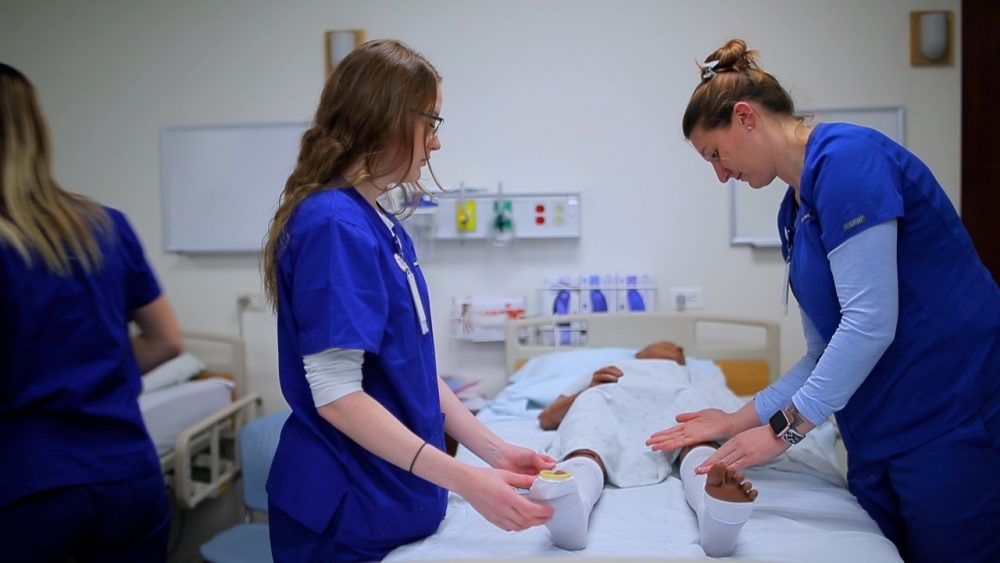Most nurses have a Bachelor of Science in Nursing degree today, as reported by the American Association of Colleges of Nursing. This degree expands their job opportunities while increasing their earning potential. Patients also benefit when nurses obtain this degree, as their outcomes improve. However, many nurses have yet to take advantage of this opportunity. How can they do so while continuing to work?
A BSN completion program is often the answer they are searching for. This program allows them to use classes they have taken or are taking toward the degree. A completion program enables students to complete their bachelor’s degree in a shorter timeframe. They won’t need to repeat certain classes if they have the required GPA and grades in those classes. The requirements vary by school, so nurses should compare several options to find one that meets their needs. Why should they pursue this degree?
Higher Pay
A BSN increases the nurse’s earnings. In March 2024, Payscale reported nurses with a BSN earn approximately $20,000 more than their peers with an associate’s degree. The ability to take on higher roles with a BSN is one reason nurses make more upon obtaining this degree.
Job Security
Many employers today require nurses to have a BSN. Those that don’t have this requirement in place will prioritize nurses who have opted to obtain this degree. Nurses who obtain a bachelor’s degree find they have significantly higher employment rates than individuals who received a degree in another field, according to the American Association of Colleges of Nursing.
Comprehensive Training
The bachelor’s degree program offers a more comprehensive education. Nurses learn about clinical practice, leadership, advanced health assessments, and a range of other topics. They may take courses related to behavioral health nursing, community health nursing, and a variety of different topics. The information gained in these classes prepares them for advanced roles in the healthcare field.
Increased Opportunities
Nurses find they have more job opportunities when they secure a BSN. They may serve as travel nurses or work in the trauma department of a major hospital. Some nurses choose to specialize in pediatrics, oncology, or critical care. The advanced degree provides them with more options.
Further Education
A nurse must obtain a BSN if they wish to continue their education and pursue a graduate degree in nursing. Schools require this background for many students. Students should have all necessary prerequisites before applying for the BSN program.
Better Patient Outcomes
Patient outcomes improve when nurses with advanced degrees are part of their treatment teams. The critical thinking and leadership skills acquired in advanced degree programs translate to improved patient care, ultimately leading to better outcomes. Survival rates improve, and patients are exposed to a lower risk of harm.
Increased Independence
Nurses with a BSN can take on more responsibility. They have the autonomy to make many decisions regarding patient care. Furthermore, they can advance their career more rapidly thanks to the strong clinical decision-making skills they learned in school.
A nurse might feel as if they don’t have the time to pursue an advanced degree. Thankfully, there are many options open to them. Every nurse should explore these options to find a program that fits their lifestyle and needs. They should also discuss financial assistance with their employers, as healthcare organizations benefit when their nurses hold BSNs. They may pay all or part of the cost, making it easier for nurses to advance their education and their careers.





